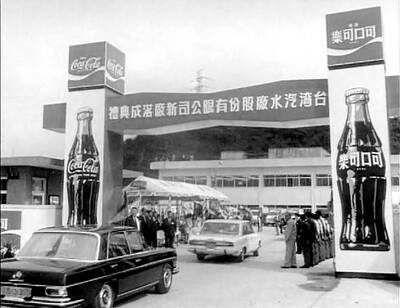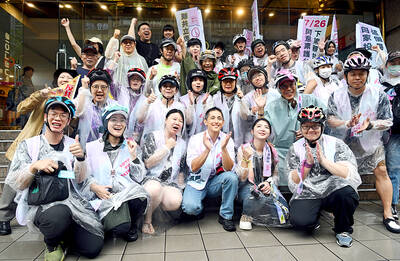The Children Branded by Leprosy (索瑪花開的季節) is a documentary film by Taiwanese filmmaker Wu Chao-chun (吳兆鈞). His goal was to make a film, but he also established the Wings of Hope Charity Group (中華希望之翼服務協會) in 2003.
Shot in the backwoods of China's Sichuan Province, it depicts the lives of the healthy children of people relegated to a leper colony, all of whom have been forced to live ostracized from society because of the stigma associated with the disease.
This cross-strait production highlights the social isolation forced on communities tainted by leprosy and shows how a new generation struggles on. Unbowed by mainstream society's rejection, the subjects of the film continue to enjoy the riches of nature and life.

The film also documents the work of a dedicated group of volunteers from Taiwan who continue to work with lepers and their families in Sichuan.
Learning of Wings of Hope's efforts in China, Taiwan's Lo Sheng (Happy Life) Sanatorium established a fund for the children of those inflicted with the life-altering disease.
The Lo Sheng (Happy Life) Sanatorium has been the subject of controversy in recent years because of its efforts to relocate long-term residents to make way for a new MRT line.
The screenings in Taiwan are intended to show the solidarity of marginalized groups in the face of mistreatment by mainstream society. A blog with additional information in Chinese about the film can be found at blog.pixnet.net/leprosy2007.
The premier screening is at 7pm tonight at Lux Cinema (樂聲數位旗艦店), 85 Wuchang St Sec 2, Taipei City (台北市武昌街2段85號), followed by a charity screening tomorrow at 7pm at the main hall of the Lo Sheng (Happy Life) Sanatorium (樂生療養院), 794 Chungcheng Rd, Sinjhuang City, Taipei County (台北縣新莊市中正路794號).
No admission will be charged for the screening at Lux, but donations are appreciated and will go to the Wings of Hope Charity Group.

July 28 to Aug. 3 Former president Chiang Kai-shek (蔣介石) reportedly maintained a simple diet and preferred to drink warm water — but one indulgence he enjoyed was a banned drink: Coca-Cola. Although a Coca-Cola plant was built in Taiwan in 1957, It was only allowed to sell to the US military and other American agencies. However, Chiang’s aides recall procuring the soft drink at US military exchange stores, and there’s also records of the Presidential Office ordering in bulk from Hong Kong. By the 1960s, it wasn’t difficult for those with means or connections to obtain Coca-Cola from the

No one saw it coming. Everyone — including the Chinese Nationalist Party (KMT) — expected at least some of the recall campaigns against 24 of its lawmakers and Hsinchu Mayor Ann Kao (高虹安) to succeed. Underground gamblers reportedly expected between five and eight lawmakers to lose their jobs. All of this analysis made sense, but contained a fatal flaw. The record of the recall campaigns, the collapse of the KMT-led recalls, and polling data all pointed to enthusiastic high turnout in support of the recall campaigns, and that those against the recalls were unenthusiastic and far less likely to vote. That

Taiwan is today going to participate in a world-first experiment in democracy. Twenty-four Chinese Nationalist Party (KMT) lawmakers will face a recall vote, with the results determining if they keep their jobs. Some recalls look safe for the incumbents, other lawmakers appear heading for a fall and many could go either way. Predictions on the outcome vary widely, which is unsurprising — this is the first time worldwide a mass recall has ever been attempted at the national level. Even meteorologists are unclear what will happen. As this paper reported, the interactions between tropical storms Francisco and Com-May could lead to

A couple of weeks ago the parties aligned with the People’s Republic of China (PRC), the Chinese Nationalist Party (KMT) and the Taiwan People’s Party (TPP), voted in the legislature to eliminate the subsidy that enables Taiwan Power Co (Taipower) to keep up with its burgeoning debt, and instead pay for universal cash handouts worth NT$10,000. The subsidy would have been NT$100 billion, while the cash handout had a budget of NT$235 billion. The bill mandates that the cash payments must be completed by Oct. 31 of this year. The changes were part of the overall NT$545 billion budget approved